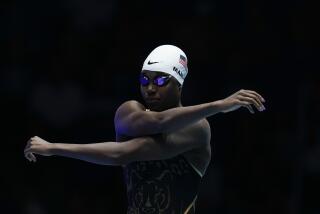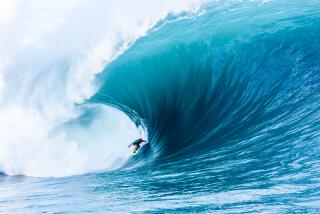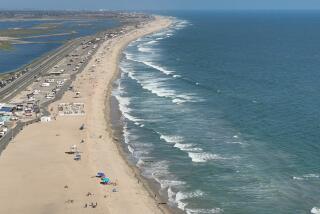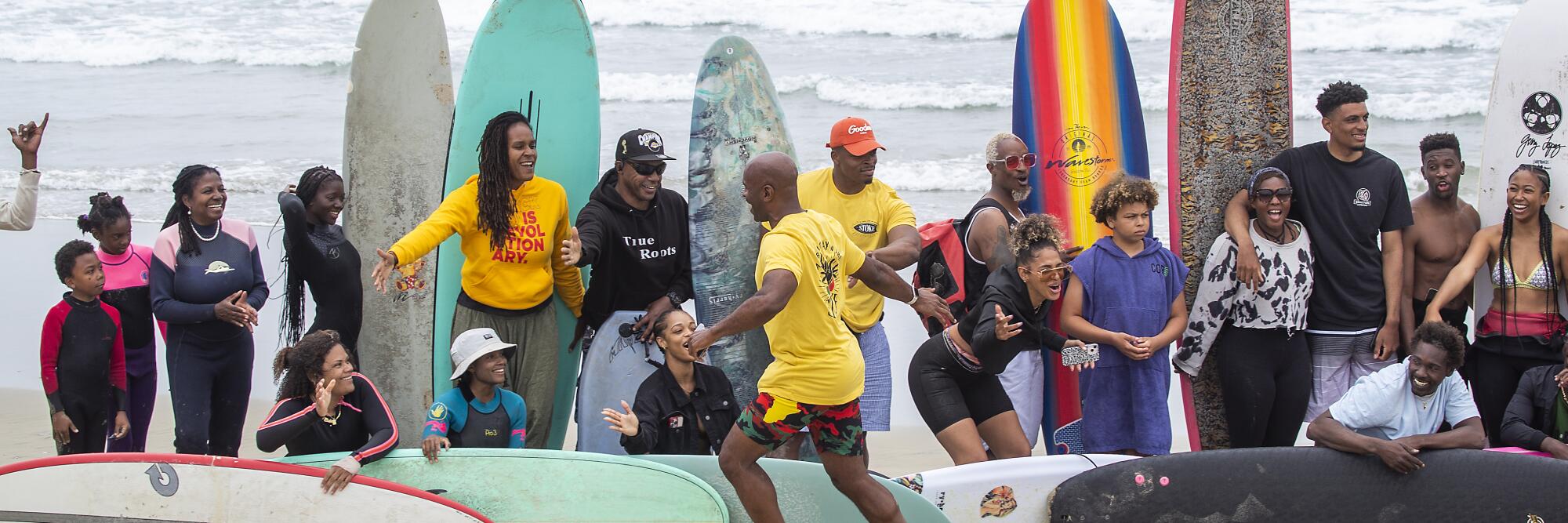
- Share via
Once he’s enveloped in the barrels of the Pacific’s blue-gray waves, Nathan Fluellen feels one with God.
The chilled water, while untamed, supplies a transcendent energy to anyone who dares ride its swells. They say Black people don’t like the water, but bucking that stereotype has continued to propel Fluellen back onto his surfboard and into the ocean.
“It fits my ethos of something new every day and something different, a new challenge,” Fluellen said.
Saturday morning on the shores of Huntington Beach, he invited Black people of all ages into his joy. Dozens, clothed in wetsuits, drifted from the waves and into the dampened sand during Fluellen’s event “A Great Day in the Stoke,” what he has coined as “the largest gathering of Black surfers in history.”
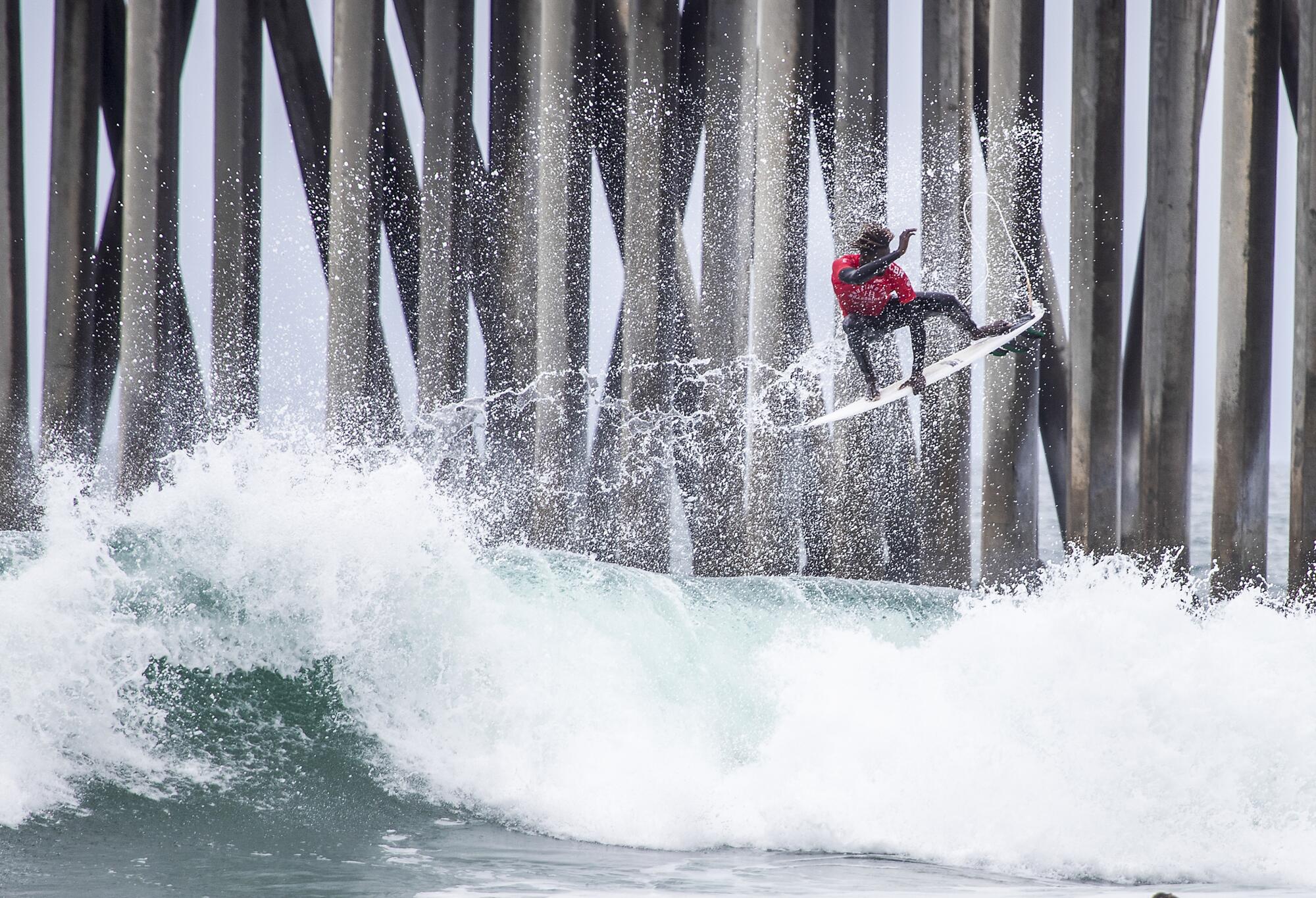
Initially scheduled to occur in October 2021, the free event sponsored by Patagonia, Black Girl Sunscreen and Kavata Swimwear moved to this summer because of a crude oil spill off the coast of the beach last fall. “A Great Day in the Stoke,” which also honored Black surfing pioneers Sharon Schaffer and Tony Corley, featured a surfing competition, beach yoga and surfing lessons.
Fluellen said the idea for the event came to him in the aftermath of 2020s racial reckoning when Black surfers staged “paddle outs” in honor of murdered Black people such as George Floyd and Ahmaud Arbery, and Breonna Taylor, who was fatally shot by police. Still, the inspiration for the event runs even deeper.
“When I became an adult, I started hearing people saying Black people don’t know how to swim,” said Fluellen, a Chicago native who has swum since he was 10 months old. When he traveled to South Africa for his show “World Wide Nate: African Adventures” and highlighted the Zulu people who both swam and surfed, he proved this idea to be a myth.
“I started taking surf lessons at Venice Beach, so I could hop on the board on camera, and I just fell in love,” Fluellen said. “It was something I always wanted to do as a kid, but because of representation, I didn’t see anybody that looked like me.”
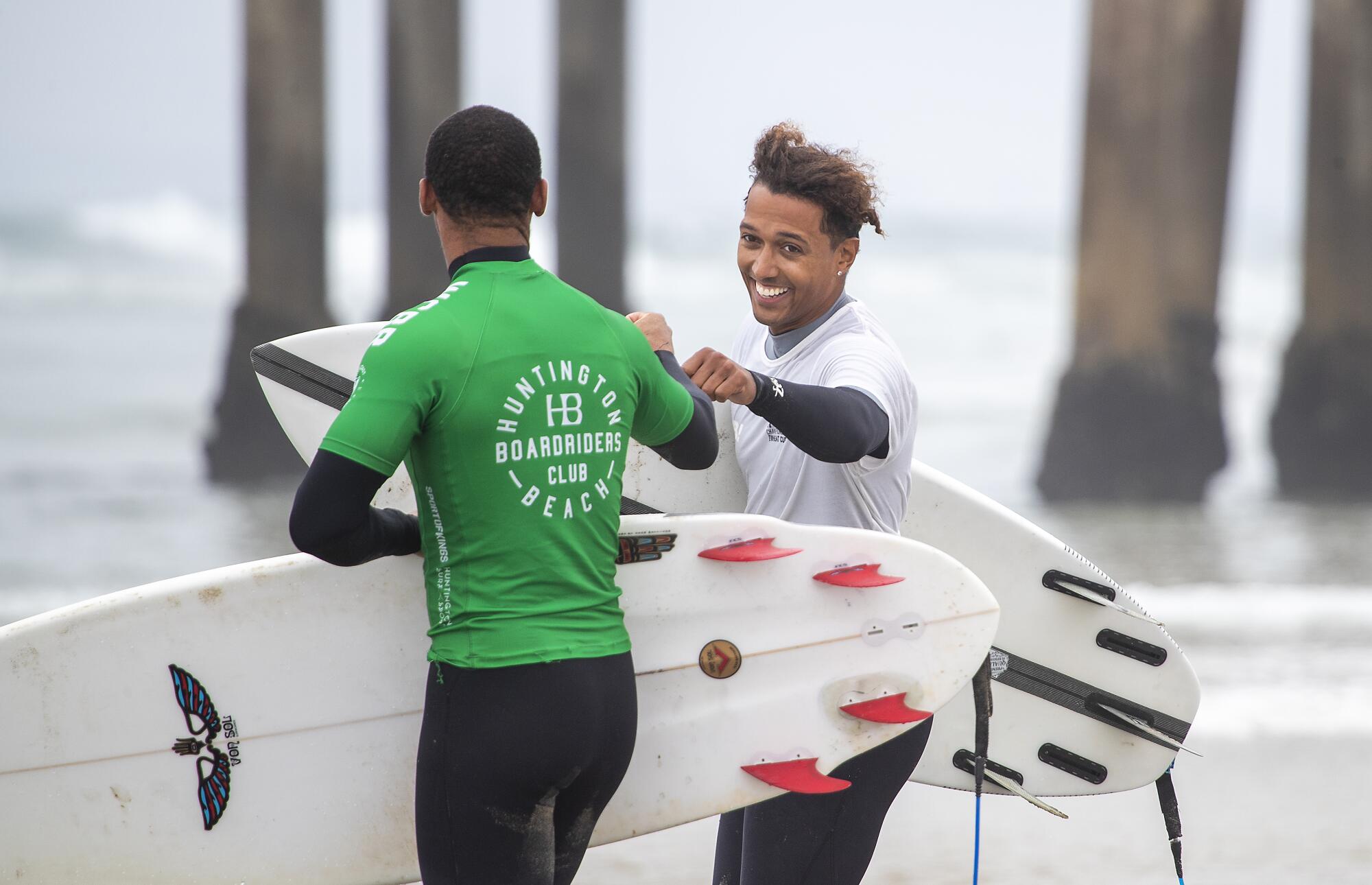
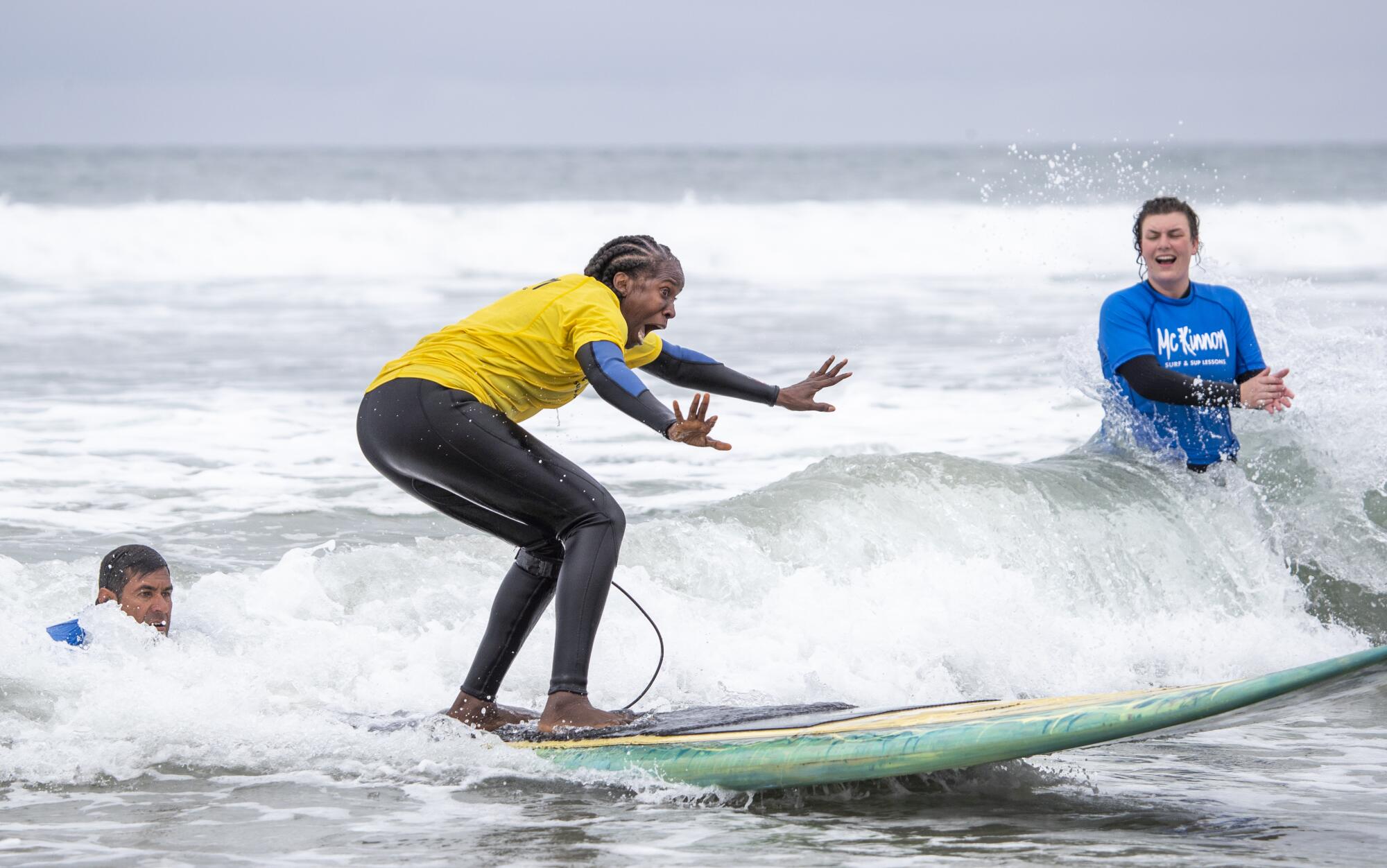
That wasn’t the case Saturday morning. Black people from Senegal, Jamaica, and various other places from across the diaspora made their way to Huntington Beach for the contest. Antwoine Langley flew in Friday from South Carolina just for the event, which gained its exposure from social media.
Langley took up surfing 14 years ago because he was tired of getting roughed up on a skateboard, though he was good enough on the pipes to earn sponsorships. He simply applied his skateboarding skills to the waves. The skater-turned-surfer has traveled all around, but never saw many other Black people in the water.
“It wasn’t like it bothered me, but you definitely get the ‘eye’ out there,” Langley said.
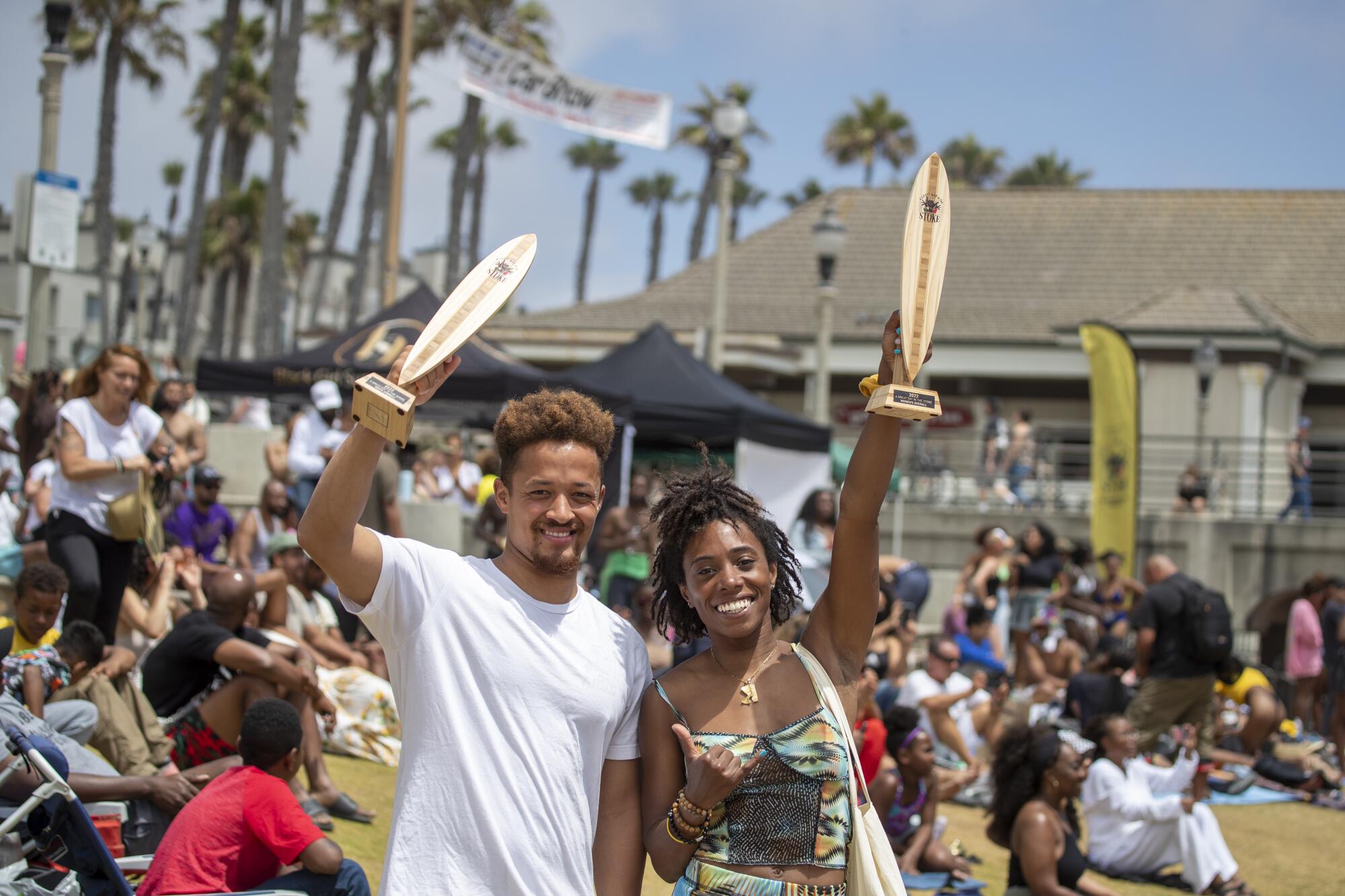
Ryan Harris, who makes eco-friendly surfboards and has surfed for 25 years, said the stigma surrounding Black swimmers and surfers all ties back into racism. Who gets access to what. Who has the luxury to enjoy something as basic as clean air.
Black people, he said, typically had to live inland and couldn’t get to the ocean because of financial barriers, among others. The Portland native who moved to Los Angeles 20 years ago said he’s seen positive change in the aftermath of 2020. Various nonprofits have cropped up to serve the BIPOC (Black, Indigenous and people of color) surfing community.
“It is crazy what the younger generation is doing,” Harris said. “Now, I’m not the only Black guy in the local surf spot.”
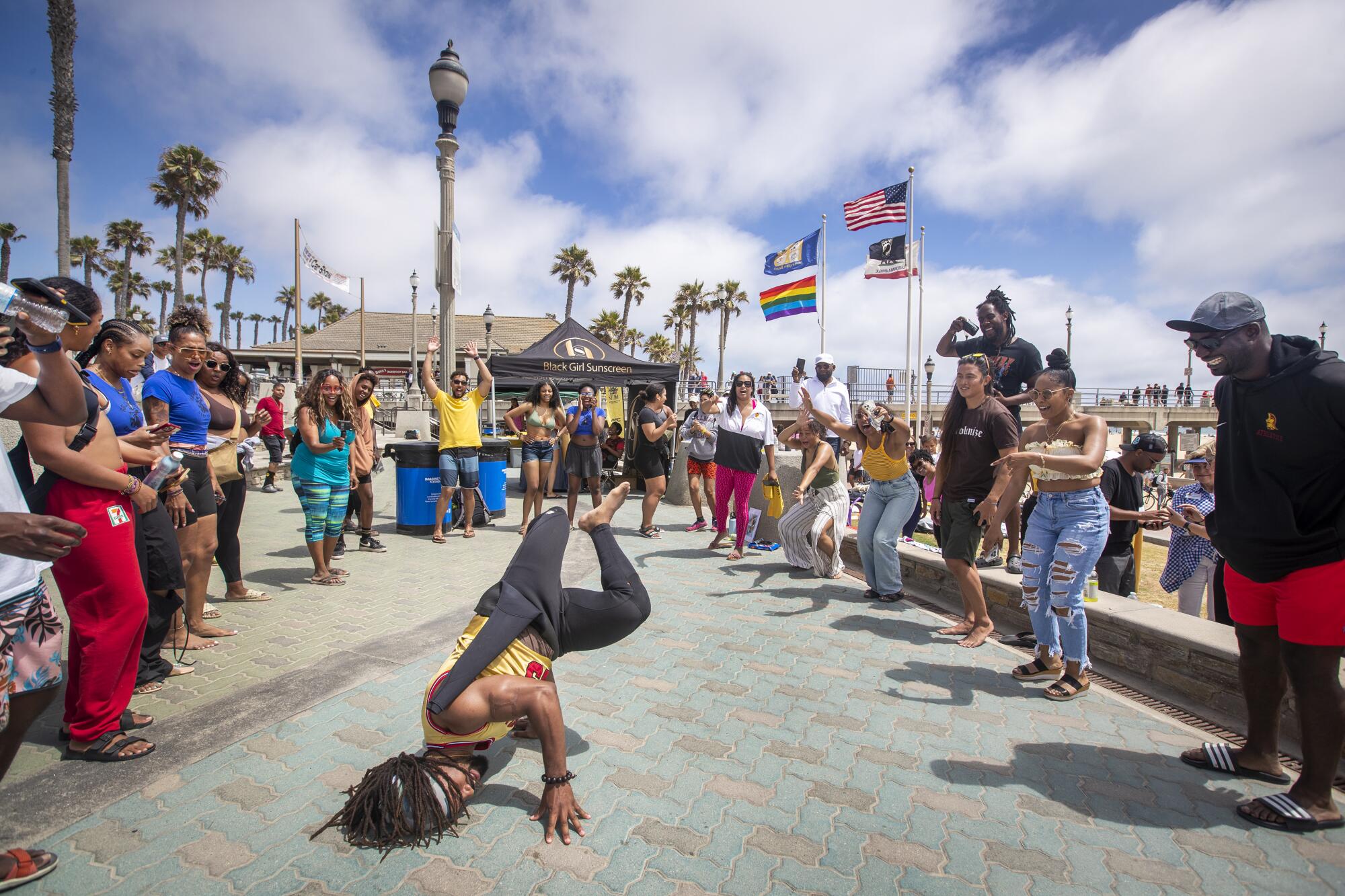
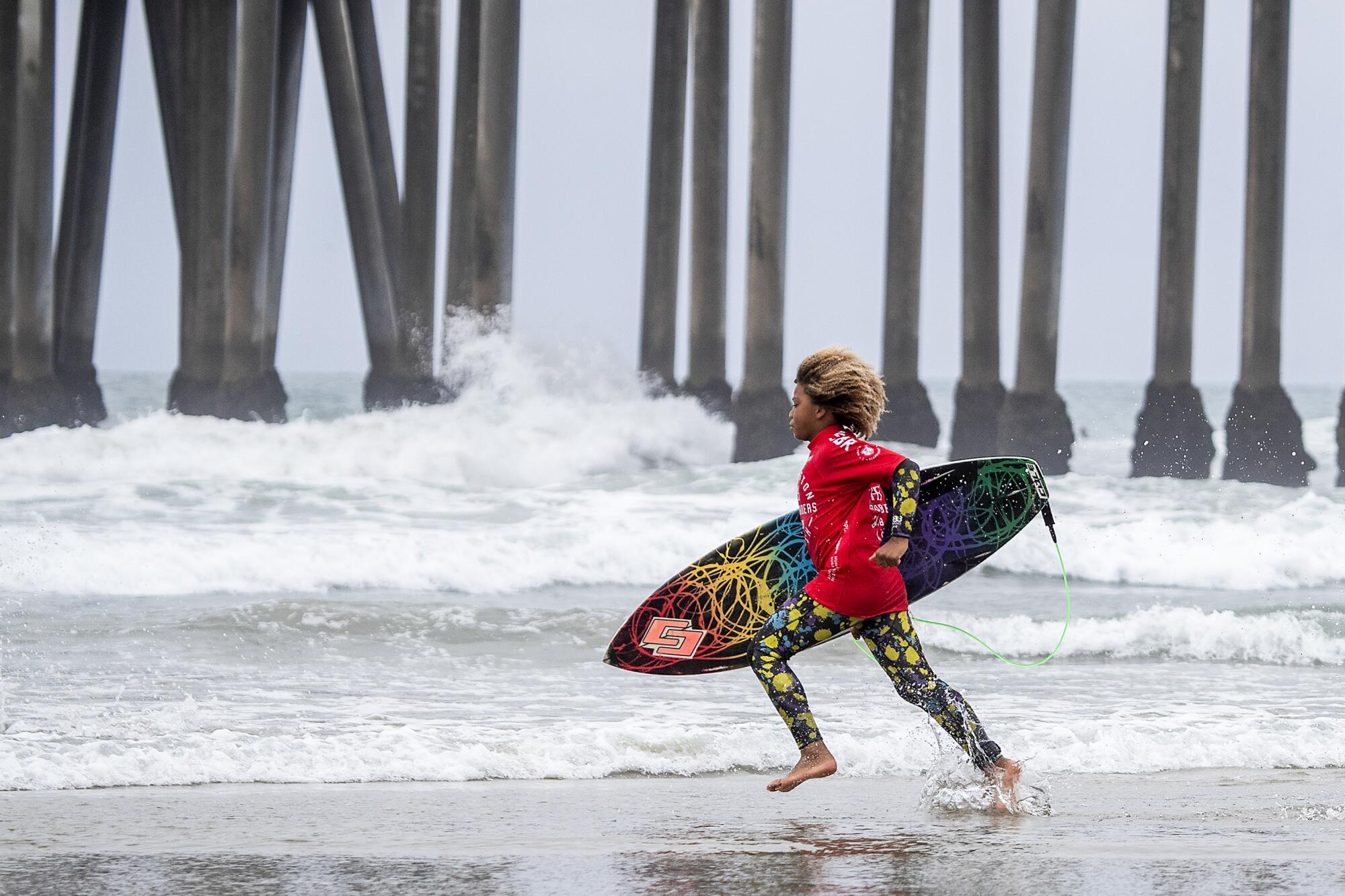
Divinity Gaines has faced an additional barrier as a woman who surfs. Being the “only” doesn’t bother the dancer from New Jersey, however. Gaines said she surfs to honor her late brother. Her mother would take them to the beach every Sunday and she fell in love with the ocean.
She met Fluellen previously and decided to join the competition. The waves heal her rather than scare her.
“I try not to live in fear because, what is fear?” Gaines said. “On the other side of fear is freedom.”
That freedom is childlike, almost. Racism wasn’t on Schaffer’s radar when she was a young girl growing up in Los Angeles swimming with her sisters. Her father wanted to show them that Black girls could enjoy other sports besides track and field and basketball.
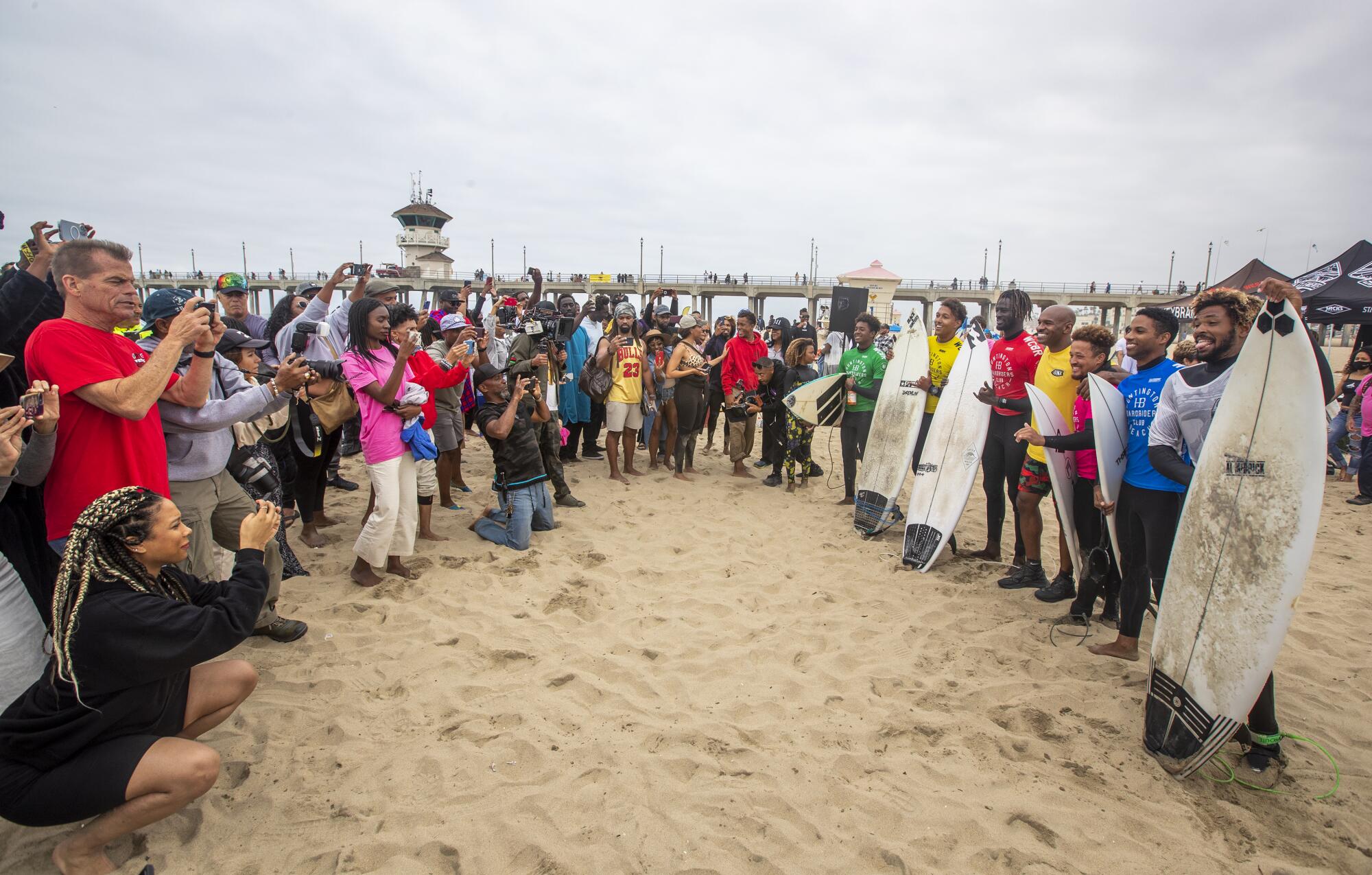
To Schaffer “A Great Day in the Stoke” was a way to “bring love and joy and our beautiful Blackness to the water.” Schaffer said that, because of injury, she’s been on hiatus from surfing for a short time. Absence from the sport has impacted her mental health. Surfing, she said, cleanses her soul and renews her spirit.
Trevor Jackson, the “Grown-ish” actor who surfs in his free time and made an appearance at the event, said catching his first wave changed him. The harmony of the ocean lets him step away from it all.
“It’s my unplug,” Jackson said. “It’s my getaway from my phone. Getaway from work, business.”
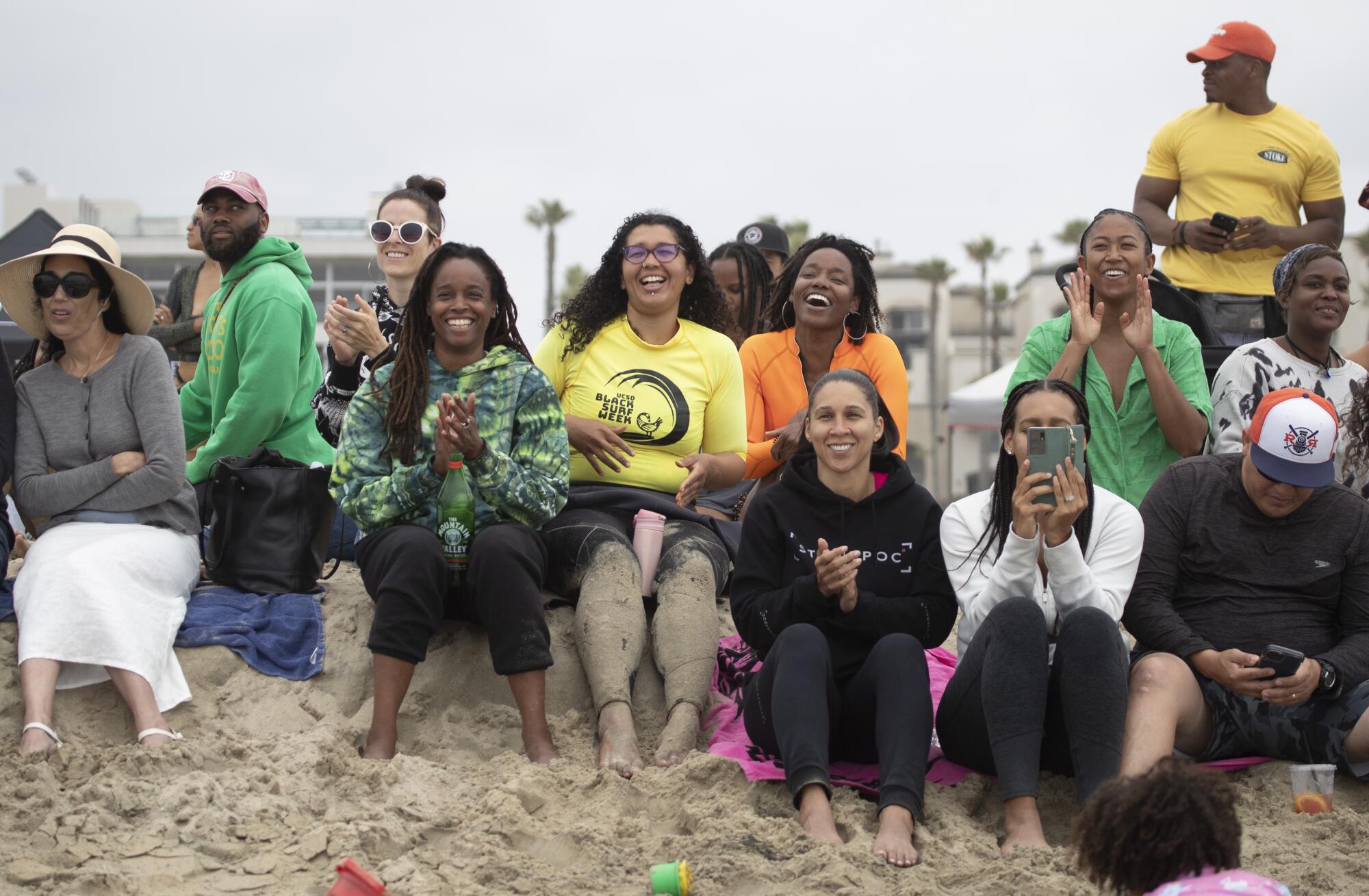
Schaffer thinks the Black community could use more of that restorative energy the ocean provides. Stigma aside, everyone needs that kind of nutrition and care.
The smiles spread far and wide across the clouded beach Saturday morning communicated that.
“This is a movement that’s legendary,” Schaffer said. “I think we’re all revolutionaries. Just to be here. Just to be having this different mindset. And just reclaiming our space as well.”
The Cal State Dominguez Hills softball team was stung by a midseason break-in but rallied to make the deepest postseason run in school history.
More to Read
Go beyond the scoreboard
Get the latest on L.A.'s teams in the daily Sports Report newsletter.
You may occasionally receive promotional content from the Los Angeles Times.

